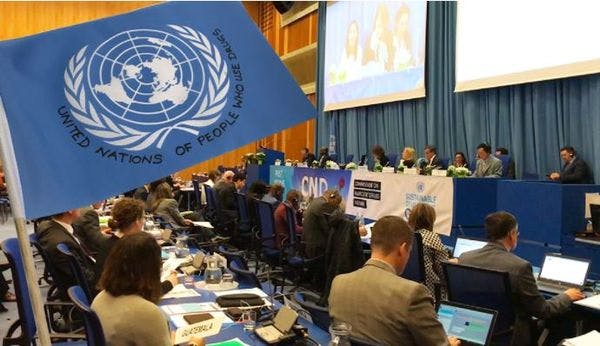ANPUD
The CND is dying: Time to put people who use drugs, evidences and human rights at the center of the response.
The 61st session of the Commission on Narcotics Drugs (CND) was held from March 12-16, 2018 in Vienna, Austria. It was a disappointment like any of the last sixty sessions. It has become an automated session that follows the same algorithm in which member states would come, present usual blah blah blah, praise for their stupid accomplishments on drugs seizures, field eradications and compulsory rehab programs rather than introduction to right-based programmes/policies and lives saved.
In 2009, the WHO, UNODC and UNAIDS technical guide recommended a comprehensive package of interventions for the prevention, treatment and care of HIV among people who inject drugs – widely known as comprehensive harm reduction package. In 2016, Harm Reduction International (HRI) reported that 90 countries implemented needle and syringe programmes (NSPs) to some degree and 80 had at least one opioid substitution programme (OST) in place. Worldwide, at least 20 countries have allowed cannabis for medicinal purposes; some more of them have introduced decriminalization for possession of cannabis for personal use; few have already introduced a regulated cannabis industry; and few have decriminalized all forms of drugs for personal use. The first thing anyone attending the CND would notice is that the CND does not resonate these facts – no mentioning of “harm reduction”, “medicinal cannabis” or “decriminalization”.
The other thing CND avoided mentioning in its formal sessions are the consequences and miseries brought by the horrible interpretations (contentious pluralism is what diplomats prefer to call it) of the 1961, 1971 and 1988 UN drug conventions. It really did not matter if the Philippines government’s nation-wide war on drugs was responsible for 20,000 deaths since June 2016; if the Indonesian government killed 107 people extra-judicially in 2017; if the Chinese government has been publicly sentencing and later executing more people than the rest of the world combined annually; if the Cambodian government arrested 17,000 people suspected of drug use in 2017; if criminal justice systems are over-burdened and prisons are overcrowded; if at least 33 countries and territories prescribe the death penalty for drug offences in law; and if the compulsory drug detention centres in East and Southeast Asia have detained more than 235,000 people who use drugs in an inhumane condition. The CND also avoided seeing, hearing and speaking the failures of the 2009 political declaration and plan of action on International Cooperation towards an Integrated and Balanced Strategy to Counter the World Drug Problem and yet member states would be willing to reaffirm their commitments.
Topics
Regions
Related Profiles
- Asian Network of People who Use Drugs (ANPUD)
